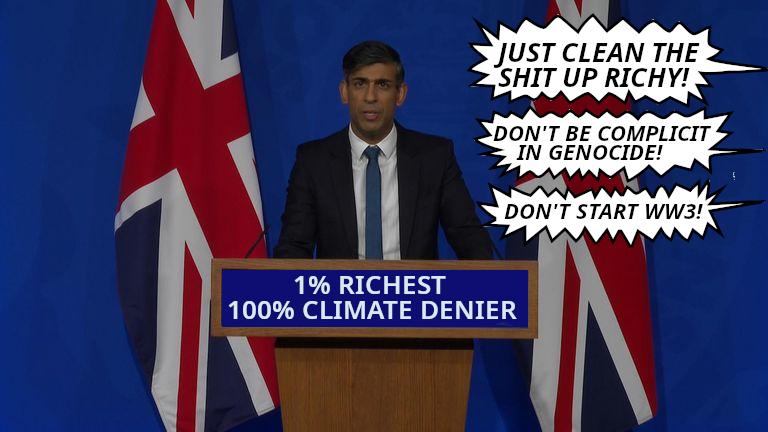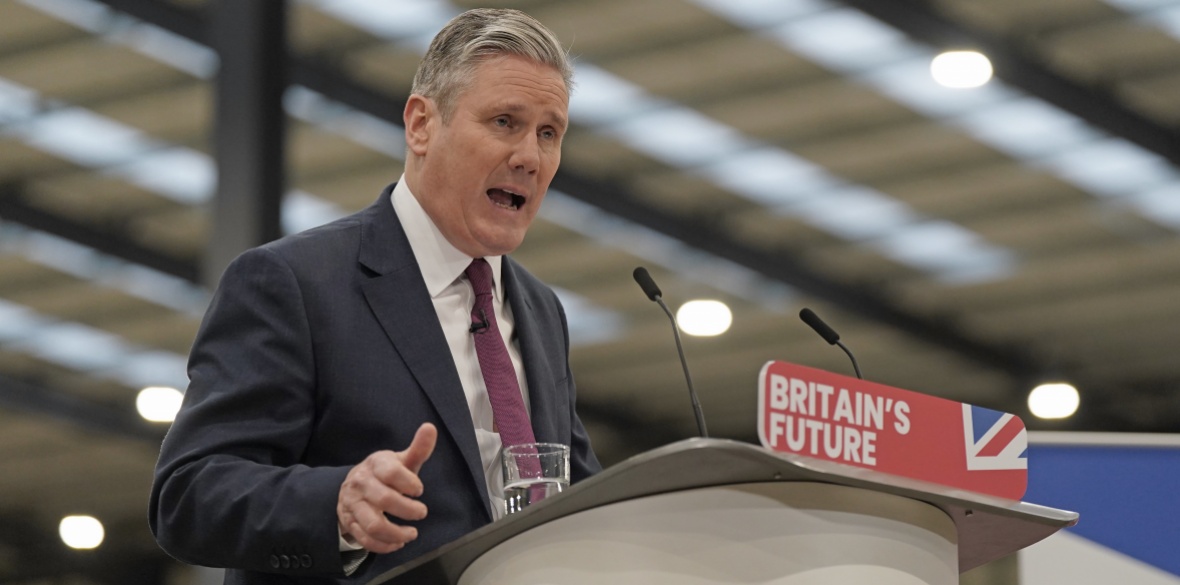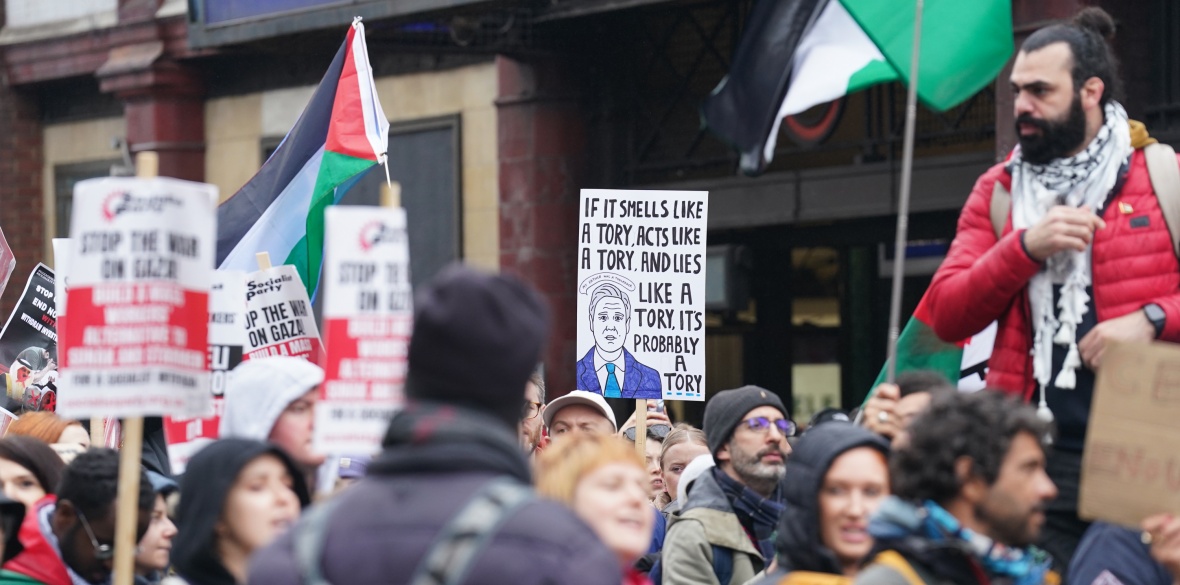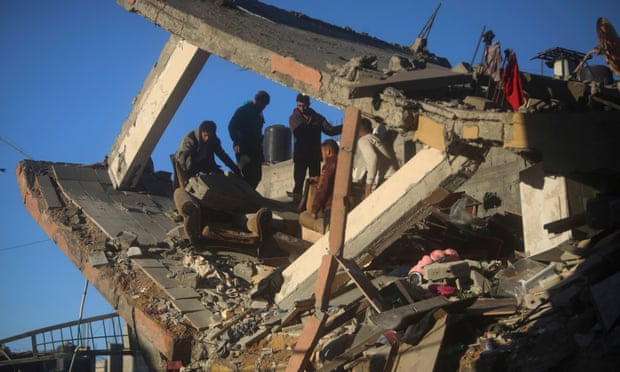US, UK Bomb Yemeni Capital as Part of ‘Sustained’ Attack on Houthis
Original article by BRETT WILKINS republished from Common Dreams under Creative Commons (CC BY-NC-ND 3.0).

“The U.S. just bombed Yemen again,” the peace group CodePink noted. “The U.S. is illegally attacking Yemen so Israel can continue illegally attacking Gaza.”
Anti-war voices on Monday condemned the start of what appeared to be the “sustained” assault on Yemen by U.S. and U.K. forces that top Biden administration officials have reportedly been planning—without congressional approval—in a bid to stop Houthi attacks on Red Sea shipping.
“The U.S. just bombed Yemen again,” the peace group CodePink lamented on social media. “The U.S. is illegally attacking Yemen so Israel can continue illegally attacking Gaza.”
The intensified attacks on Yemen—an impoverished nation reeling from a decade of civil war and U.S.-backed Saudi-led airstrikes—come amid Israel’s 108-day assault on Gaza, which has killed over 25,000 people and drawn a response from the Houthis in the form of largely ineffective missile and drone strikes.
“Today, the militaries of the United States and United Kingdom, at the direction of their respective governments with support from Australia, Bahrain, Canada, and the Netherlands, conducted an additional round of proportionate and necessary strikes against eight Houthi targets in Yemen in response to the Houthis’ continued attacks against international and commercial shipping as well as naval vessels transiting the Red Sea,” a joint statement from those six nations explained.
“These precision strikes are intended to disrupt and degrade the capabilities that the Houthis use to threaten global trade and the lives of innocent mariners, and are in response to a series of illegal, dangerous, and destabilizing Houthi actions since our coalition strikes on January 11, including anti-ship ballistic missile and unmanned aerial system attacks that struck two U.S.-owned merchant vessels,” the statement continued.
According to the six countries, Monday’s attacks “specifically targeted a Houthi underground storage site and locations associated with the Houthis’ missile and air surveillance capabilities.”
Fatik Al-Rodaini, a Yemeni journalist and human rights activist who founded the charity Mona Relief, reported on social media that “massive explosions have been heard loudly in the capital Sanaa,” while multiple videos published online showed large explosions rocking the city, raising fears of civilian casualties.
Houthi spokesperson Mohammed Al-Bukhaiti vowed on social media Monday that “the American-British aggression will only increase the Yemeni people’s determination to carry out their moral and humanitarian responsibilities towards the oppressed in Gaza.”
“The war today is between Yemen, which is struggling to stop the crimes of genocide, and the American-British coalition to support and protect its perpetrators,” he added. “Thus, every party or individual in this world is faced with two choices that have no thirds: either to preserve its humanity and stand with Yemen, or to lose it and stand with the American-British alliance.”
Asked last week if bombing Yemen was working, U.S. President Joe Biden—an ardent supporter of Israel’s assault on Gaza—replied: “Well, when you say ‘working,’ are they stopping the Houthis? No. Are they going to continue? Yes.”
Some Biden administration officials have said it may take weeks or even months to stop Houthi attacks on Israeli-linked commerce. U.S. bombardment is nothing new to Yemenis, who have suffered American air and drone strikes—as well as occasional ground raids like the one in which 8-year-old Yemeni American Nawar al-Awlaki was killed—since the George W. Bush administration.
According to the U.K.-based monitor Airwars, U.S. forces have killed an estimated 154-273 Yemeni civilians in 181 declared actions since 2002.
In an article published by The Nation Monday, U.S. Rep. Ro Khanna (D-Calif.) asserted that “President Biden has both the constitutional obligation and a political imperative to seek congressional authorization” for attacking Yemen.
“To be sure, the president is afforded the authority under the Constitution and the War Powers Act to repel a sudden Houthi attack on the United States, its territories, possessions, or its armed forces, in the narrow case where self-defense requires immediate action,” the congressman added. “But in the absence of such a national emergency, the president must seek authorization from Congress.”
The online activist group RootsAction weighed in on the latest U.S. war—which Biden administration officials won’t admit is one—by accusing the president of seeking to “starve the region’s poorest country.”
“Joe Biden is starting a war on Yemen with no exit plan. Just more forever wars that no one wants,” the group said. “The Democratic Party expects us to vote for this in November?”
Original article by BRETT WILKINS republished from Common Dreams under Creative Commons (CC BY-NC-ND 3.0).
- Biden Urged To Reject Military Attack On Yemen As Red Sea Tensions Soar ›
- Amid Fears Of Wider War, US Reportedly Drafting Plans To Bomb Yemen ›
- ‘This Is Illegal’: US Lawmakers Slam Strikes On Yemen ›
- Biden Admits Bombing Yemen Isn’t Working, But Says US Will Continue Anyway ›
- Fears Of Wider War As US, UK Bomb Yemen ›
- US-UK Strikes On Yemen Prove No Lessons Learned ›





